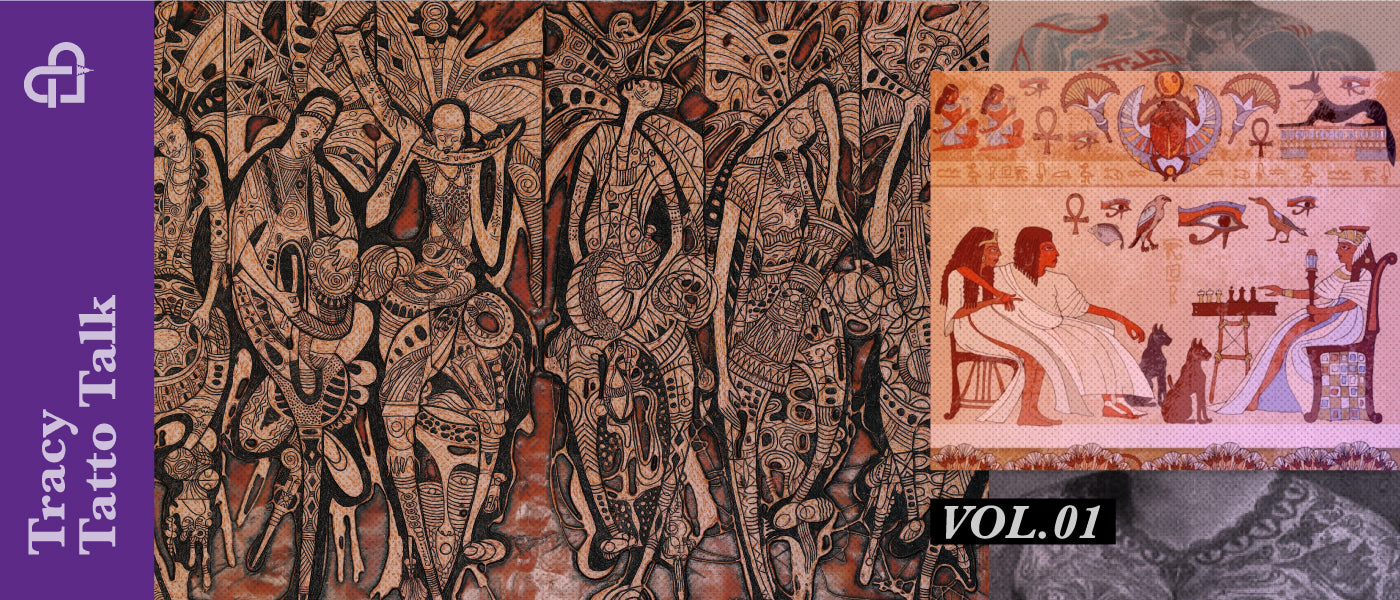Tattooing in Ancient Civilizations
Grosse mentioned in his book "The Origin of Art" that tattoos are a way for humans to imitate the patterns on the bodies of animals to decorate their skin. According to the belief of the ancients, if they tattoo the patterns on the fur of an animal on their body, they can gain the same power as that animal.
Many ethnic groups and regions at that time regarded tattoos as a symbol of beauty and even as etiquette for communication. Just like in today's business etiquette, just as business etiquette now requires formal dress, tattoos were considered a fundamental aspect of social etiquette in ancient societies.
How Did Civilized Societies Affect the Status of Tattooing?
Whether in the West or the East, "civilized people" who wear clothes have a natural moral contempt for "savages" who don't wear clothes. One of the ways to distinguish civilization from barbarism is through tattoos.
Because of the dual reasons of health and religious belief, clean skin has become a symbol of people's worship.
Everyone hopes to have the same physical condition as a ruler, so humans have even invented cosmetics to cover up the imperfections on their skin.
Tattoos, a way of decorating that destroys the cleanliness of the skin, are considered shameless by "civilized people". So tattoos were developed for a new use: as a symbol of slave status.
Tattoos are difficult to remove, so even if these slaves or prisoners escape, it will be difficult for them to return to civilized society, and they will be reduced from civilized people to the marginalized of society or even return to the state of barbarians.
When these people come together to form a community, tattoos take on a new meaning. Tattoos have evolved from representing the opposition between "civilization" and "barbarism" to symbolizing the opposition between "order" and "rebellion."

How Did Tattoos Evolve into PopularCulture?
Although illegal organizations are gray organizations established between law and morality, since they are organizations, they must be orderly, and compared to normal society, the regulations and order within illegal organizations are more strictly enforced.
Under this circumstance, tattoos inside illegal organizations began a new development process. The stricter the illegal organization, the more the tattoo symbolizes a person's identity. Different ranks, positions, and ages determine what is tattooed, and the wrong tattoo can lead to serious consequences, especially if it offends a superior.
The strictness of illegal organizations has caused people outside the industry to become curious about their existence. When developing to a higher stage of civilization, some rebellious and idle urban youths developed admiration for these guys who could not abide by the rules and regulations of social order, so they began to imitate the behaviors of those in illegal organizations, such as tattoos.
Have You Noticed the Changes in Modern Tattoo Culture?
By the 20th century, the meaning of tattoos had undergone new changes.
For young people who felt powerless in a disappointing social environment, music became an outlet for their dissatisfaction. They tattooed their bodies with various symbolic tattoos to express their disregard for tradition and morality.
The impact of this trend is widespread but destined to be short-lived. As individualism takes hold among young people, they don't have much to worry about. They enjoy the freedom to express their personalities and values without restraint.
Especially as we enter the internet age, tattoos have become a pure form of personal expression. Young people are starting to use their bodies as canvases, etching the messages they want to convey on the skin.




Leave a comment
All comments are moderated before being published.
This site is protected by hCaptcha and the hCaptcha Privacy Policy and Terms of Service apply.